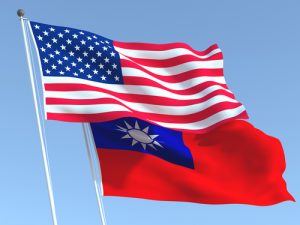
U.S. Rep. John Curtis (R-UT) recently joined members of the bipartisan Taiwan Caucus to unveil legislation that would ensure America retains its critical partnership with Taiwan and will not stand by as the People’s Republic of China (PRC) falsely claims that Beijing has the right to represent the people of Taiwan in international institutions.
Rep. Curtis signed on as the lead original cosponsor of the bipartisan Taiwan Solidarity Act, H.R. 2646, with bill sponsor U.S. Rep. Gerry Connolly (D-VA), to amend the Taiwan Allies International Protection and Enhancement Initiative (TAIPEI) Act of 2019 to provide that the United States, as a member of any international organization, should oppose any attempts by the PRC to resolve Taiwan’s status by distorting the decisions, language, policies, or procedures of the organization, according to the congressional record bill summary.
“The TAIPEI Act has greatly strengthened our relationship with Taiwan as both the Trump and Biden administrations have worked to fulfill its mandate,” said Rep. Curtis, who introduced the act that was signed into law in March 2020. “However, since the bill’s signing last year, China has mounted pressure on international organizations to claim that Taiwan is part of China. This bill adds to the TAIPEI Act in a way that would counter these attempts.”
If enacted, H.R. 2646 would expand upon the TAIPEI Act to further counter PRC claims that Taiwan is part of China, according to Rep. Curtis’ office, which noted that China has leveraged its growing influence in the United Nations (UN) and international organizations to exclude Taiwan’s participation in the international arena and has distorted UN General Assembly Resolution 2758 to claim that the resolution recognized Taiwan as part of China.
As a result, the World Health Organization has withheld its invitation to Taiwan to participate as an observer at the World Health Assembly’s annual meetings and excluded Taiwan from the international response to the COVID-19 pandemic, the congressman’s office said.
H.R. 2646 has been referred for consideration to the U.S. House Foreign Affairs Committee.



